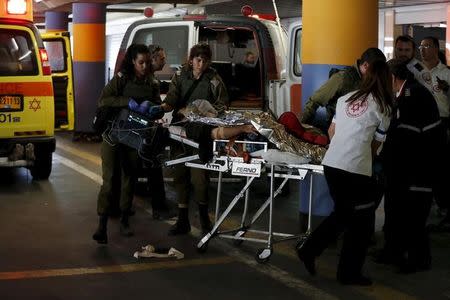Iran to pay families of killed Palestinians - ambassador in Beirut

BEIRUT (Reuters) - Iran will pay thousands of dollars to families of Palestinians killed in a wave of anti-Israeli protests and violence, or whose homes have been demolished by Israel, Tehran's ambassador to Lebanon said on Wednesday. Scores of Palestinians and dozens of Israelis have been killed in five months of street violence. Palestinians have carried out stabbings, shootings and car rammings, and Israeli security forces have shot dead many assailants. The recent violence has been stoked by a dispute over Jerusalem's al-Aqsa mosque compound and the failure of several rounds of peace talks to secure the Palestinians an independent state in Israeli-occupied territory. "The decision firstly includes giving an amount worth $7,000 to every family of a martyr of the intifada in Jerusalem," ambassador Mohammad Fathali said at a Beirut news conference. Iran would also offer "$30,000 to every family whose home the occupation (Israel) has demolished for the participation of one of its sons" in the unrest, he said. Israel condemned Iran's move. A Foreign Ministry statement said it "demonstrates again Iran's role in encouraging terror," adding that "following the nuclear agreement, Iran continues to be a major player in international terror." On Tuesday, Israeli army bulldozers demolished the homes of two Palestinians who killed five people in attacks in the occupied West Bank and Israel last year. Israeli officials say such demolitions could deter other Palestinians from launching attacks in a campaign that has killed 28 Israelis and a U.S. citizen since October. In the past five months, Israeli security forces have killed at least 168 Palestinians, 111 of whom Israel says were assailants, while most others were shot dead during violent anti-Israeli protests. (Reporting by John Davison and Laila Bassam in Beirut and by Ori Lewis in Jerusalem, Editing by Dominic Evans)

